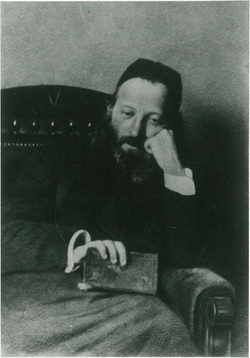- Home
- Teachings (1)
- Teachings (2)
- Teachings (3)
-
Rav Kook's Journals
- From My Inner Chambers
- Thirst for the Living God
- The Pangs of the Soul
- Yearning to Speak a Word
- Singer of the Song of Infinity
- Wellspring of Holiness
- I Take Heed
- To Know Each of Your Secrets
- Great is My Desire
- To Serve God
- To Return to God
- Land of Israel
- My Love is Great
- Listen to Me, My People
- Birth Pangs of Redemption
- New Translations
- Lights of Teshuvah
- About the Translator
- Contact Me
Jew and Gentile

Torah and Greek Wisdom
Our Sages have commented on the relationship between the nation of Israel and the other nations: their wisdom, customs and manners. They pointed out (Sanhedrin 39b) two contradictory verses by the prophet Ezekiel. In one verse, he accuses the Jews: “you have acted in accordance with the laws of the nations in your midst” (Ez. 11:12). Yet elsewhere he accuses them: “you did not act in accordance with the laws of the nations in your midst you” (ibid. 5:7). The Sages reconciled these two verses: you did not act like the best but like the most degraded of the gentiles.
However, even acting like the best of the gentiles requires a good deal of care, so that we will not be drawn to ultimately follow their degraded ways as well. The faithful basis of such action is that we carefully guard our spirit and heart. If at times we see something good, an honest way of action, a decree that promulgates civilization amongst the nations, and we take this and bring it into our border, we should remain careful not to allow the spirit of the nations in its entirety enter the content of our inner life.
Once the spirit of the nations enters the life of Israel, there is no stopping or withstanding it. At that point, the spirit of Israel has been removed from its place, and a stranger sits on its throne.
The spirit of Israel must be strong and set in our heart. The Torah, mitzvos and all the holy attributes connected to [the Torah] must be our treasure and strength.
In regard to an external and secondary aspect of life, in regard to a present need and a current civilization, we may at times take from every good thing that we find amidst the nations surrounding us. But our spirit within must remain strong and faithful to the God of Israel and His Torah. It is not that the nations enter our boundary and touch our inheritance. Rather, either we go to take from them or else they bring us what we must receive from them: “the beauty of Greece in the tents of Shem” (Yoma 10a).
When the spirit of Greece broke into the depth of the holiness of Israel, impressing a new character upon the Jewish spirit and new yearnings in the innerness of Jewish life, in accordance with the Greek outlook—when “they entered the heichal and defiled all the oils in the heichal”—they did not disqualify only those views and contents that had contact with the wild Greek culture, and were in consequence blemished. Rather, they influenced the entire structure of views and attributes, actions and teachings—spoiling their taste, pulling them down from their holiness and withholding their good and holy influence from the nation of God.
This idea must serve as a foundation to teach us, in our exile and dispersion amongst the nations, how to relate to them, their wisdom and way of life. We must take care that those things assimilated from the atmosphere of the land of the nations not enter the inner part of our lives, which is sanctified with the holiness of the name of God after Whom we are named, so that we may not be led astray.
We might think that the foreign stream will touch only a small part of the viewpoints and contents that are in accordance with the Torah. But we are aware only of the desecration of the portion visible to our eyes. We must separate and distance ourselves and carefully guard the path of true life in respect to even one portion of the spiritual pleasure of our lives and the light of our Torah that is desecrated by the touch of the stranger.
Those weak in view will console themselves that they will live with the surplus. They will believe that there still remains a great mass of teachings of truth and laws of life before them that will sustain them, despite the lack that exists where the foreign spirit has bored into the depth of their inner life.
[But this is not so.]
As soon as the Greeks “entered the heichal,” the foreign spirit entered within, coming upon the life of the Torah and holiness, wounding them and transforming them into the Greeks’ character: “they defiled all the oils in the heichal.”
They will not leave even one corner untouched. This foreign and destructive stream will spread like a serpent’s venom through the entire body of the nation, spoiling its taste, faith and innocence. It will defile the anointing holy oil of the Torah, the power that sanctifies and illumines our darkness in all situations. Then, even if there remain individual acts of Torah amongst those who are seduced by the foreign spirit, these will be carried out only by rote. In the majority, only the secondary things will remain; the defiled oil will not have the strength to shine a holy light.
Ein Ayah